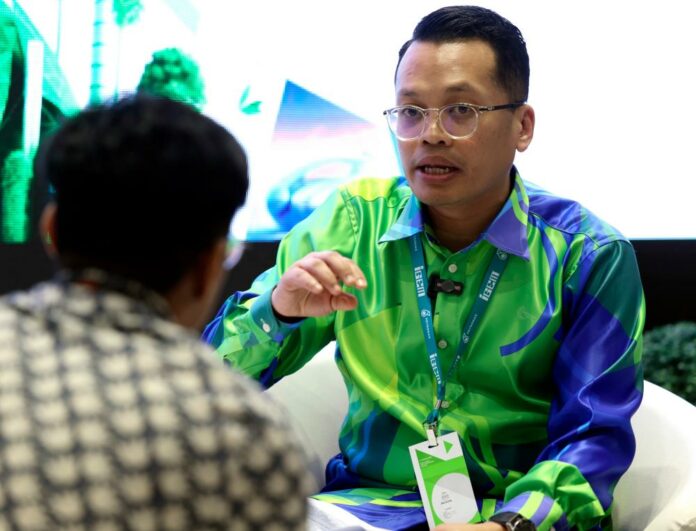KUALA LUMPUR, Oct 5 — The government is working on many fronts to phase out single-use non-biodegradable plastics by promoting alternatives and sustainable substances in plastic production, in line with the Malaysia Plastics Sustainability Roadmap 2021-2030.
Minister of Natural Resources, Environment and Climate Change Nik Nazmi Nik Ahmad said it is also finding ways to encourage informal sector entrepreneurs such as warung and smaller stalls, which play a huge part in the community, to remove single-use plastics and replace them with biodegradable ones.
“While we are at it, we need to ensure the plastics we have will truly be biodegradable as most of it currently still needs to be taken to factories or plants and biodegrade in a controlled environment,” he told reporters after attending a networking reception here today.
The reception was organised by Polymateria in conjunction with the International Greentech & Eco Products Exhibition & Conference Malaysia (IGEM).
The minister noted that standards agency SIRIM had come out with the SIRIM Ecolabel to make sure that products in the market are not greenwashing and misleading to consumers.
“At the same time, we are encouraging as many players as possible (shift to biodegradable) into the scene,” he said.
SIRIM Ecolabel is the Malaysian National Ecolabelling Programme. It gives a competitive advantage over similar products in the market that prioritises the environment.
Nik Nazmi said that although the cost of conventional plastics is 10 per cent lower than biodegradable ones, growth in the adoption of biodegradable is positive.
Asked if more initiatives would be announced during Budget 2024, he said current policies are adequate and no new ones are expected to be unveiled anytime soon.
“I think if we follow through our roadmap and our National Marine Litter Policy and Action Plan 2021-2030, we will achieve a lot of things.
“Among the efforts is collaborating with The Ocean Cleanup to implement interceptor technology, which will help to increase collection for recycling, as well as to prevent plastic waste from leaking into the ocean,” he said.
Nik Nazmi also said in terms of getting local councils in states to be involved in its green initiatives, there is a need to have minimal standards so that it could encourage them to compete with one another and feature their developments in overcoming challenges.
“We need to nudge the local councils to move along because some councils are moving so fast while the rest are left behind.
“We need to work together and engage with all stakeholders creatively and see what other alternatives we can bring if we cannot eliminate plastics entirely,” he added.
















